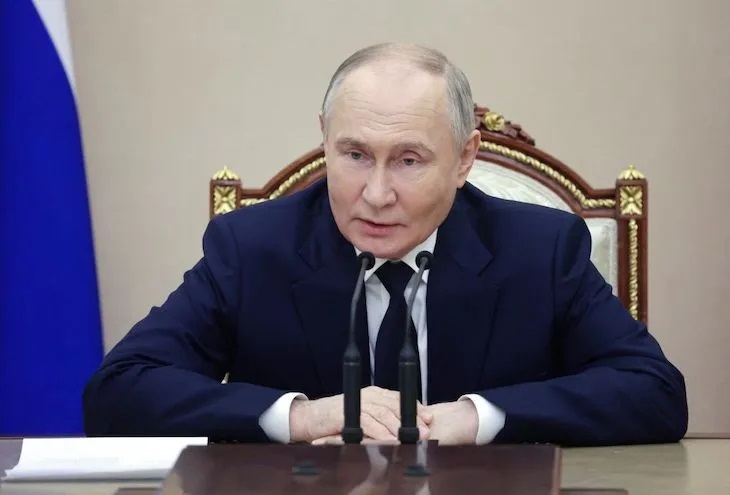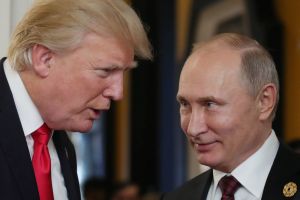Five down — how many more to go? As more and more senior Russian officers and generals are arrested on corruption charges, the rumor mill is in full spin as it cranks out claims that this is everything from a purge of potential coup plotters to a Federal Security Service, or FSB, takeover of the military. The truth is likely to be at once more prosaic and also more significant.
Tackling corruption within the top brass is a Herculean task
Before defense minister Sergei Shoigu was given his sideways move to become secretary of the security council, deputy minister Timur Ivanov had already been arrested. He was followed in quick succession by Lieutenant General Yury Kuznetsov, head of the ministry’s personnel directorate, the former head of the fifty-eight army Major General Ivan Popov, Lieutenant General Vadim Shamarin, head of the main communications directorate, and most recently Vladimir Verteletsky, a senior procurement officer. To lose one member of your top brass may be carelessness, to lose five looks like a purge.
Presidential spokesman Dmitry Peskov, asked if this were indeed a purge, sidestepped the issue, saying that it was not a “campaign” but part of a sustained effort. After all, the word purge does have ominous overtones in Russia, implying some politically-motivated and widespread bloodletting. However, the actual work, chistka, means a cleaning out, and there are some who hope this really does presage a thorough spring clean of the military hierarchy.
This is certainly part of the remit given to new defense minister Andrei Belousov: not only to connect the civil and defense economies more closely together — to strengthen the latter — but to bring greater discipline to the military budget. At a time when every ruble is needed for the war effort, the massive levels of waste and fraud within the defense ministry is not just an embarrassment, it is a security threat. The last official figures from the main military prosecutor, admitted from years ago, suggested fully 40 percent of procurement funds were embezzled, for example.
Tackling corruption within the top brass is a Herculean task, meaning not simply dealing with a few generals, but addressing a military culture that seems to regard graft as a perk of high position and also deeply dysfunctional internal accounting procedures. Belousov the economist and former deputy prime minister is well placed to address the last of these. Indeed, he quickly appointed as his (civilian) chief of staff and deputy Oleg Savelyev, previously auditor of the accounts chamber, and Belousov’s deputy, when he headed the ministry of economic development. Savelyev is considered to be someone who “understands how the central bodies of military command and control are structured” because he supervised previous audits of the defense, interior and emergency ministries.
Parliamentarian and retired general Viktor Sobolev has admitted that “Belousov audits everything and everyone. And it turns out that not everything was going smoothly for us” in the ministry. There is certainly an expectation that there will be tougher financial controls, but whatever procedures one official develops, another can find ways round. The challenges of a culture of corruption are far harder to address, especially for someone like Belousov, who has no military experience, no particular authority with the generals, and no team of likeminded colonels and generals to put into key positions.
Belousov’s accountants may well yet make a serious contribution to the war effort
To a degree, then, this current purge — which is unlikely to be over — is likely performative, a high-profile demonstration that there is a new sheriff in town and everyone better mend their ways. The fact that it is being carried out by DVKR, the FSB’s military counterintelligence service, with Putin’s blessing and Belousov’s approval, is not, as some suggest a sign that the spooks are trying to rein in the soldiers, so much as that this is something that comes from the top of the system. There is always a place for the performative in politics, but the real challenge is moving on to change the underlying culture, not least as Putin’s whole system is a kleptocracy.
Nonetheless, there is an expectation that Belousov will likely have some success simply by cutting down on the simpler and more egregious forms of embezzlement both within the ministry and also by their suppliers, through administrative reforms. One ministry insider suggested “he may be able to cut” the high-level, industrial-scale corruption “by perhaps one ruble in four, one in three, if he’s really lucky, and really good.”
In the context, though, when almost every military construction project is padded, where heavy-duty, all-terrain tires are invoiced for and cheap Chinese replacements actually fitted, and in which shoddy and overpriced contractors get repeat orders by paying off the procurement officer, even a 10 percent improvement will make a real difference, considering that this year’s budget saw 11 trillion rubles ($109 billion) devoted to defense. Belousov’s accountants may well yet make a serious contribution to the war effort.
This article was originally published on The Spectator’s UK website.


























Leave a Reply